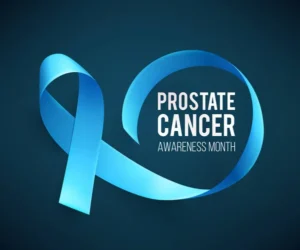Patients and Care Givers | Types of Cancer | Prostate | Risk Factors & Symptoms
Risk Factors & Symptoms1
My daughter said (prostate cancer) was an old black man’s disease. She said something else is going to kill you before that … but I wanted it treated and out of the body so that it did not spread to other areas of the body that are not as predictable for an old black man."
Amos Tingle
All men with a family history of certain types of cancer are more likely to get prostate cancer. For these men there are genetic factors that may put them at higher risk of prostate cancer.
My daughter said (prostate cancer) was an old black man’s disease. She said something else is going to kill you before that … but I wanted it treated and out of the body so that it did not spread to other areas of the body that are not as predictable for an old black man."
Amos Tingle
All men with a family history of certain types of cancer are more likely to get prostate cancer. For these men there are genetic factors that may put them at higher risk of prostate cancer.
Genetic Factors for a Higher Risk of Prostate Cancer
You have:
– more than one first-degree relative (father, son, or brother) who had prostate cancer, including relatives in three generations on your mother’s or father’s side of the family.
You were:
– diagnosed with prostate cancer when you were 55 years old or younger.
– diagnosed with prostate cancer, and other members of your family have been diagnosed with breast, ovarian, or pancreatic cancer.
In many cases, like in my case, it can affect you when you’re young and it’s fast-growing. If you’re not aware of it, in many cases men don’t find out until they’re beyond help. In many cases, you don’t have signs or symptoms, it’s fast-growing, and it can affect you when you’re young. That kinda disturbed me … it was never something on my radar that annually I need to talk to my doctor and be concerned about this. The other thing I learned that really upset me is that my father had prostate cancer … and I found out now that if your father has prostate cancer, you have a 50% greater chance of getting the disease. Again, I was aware of it and it was never on my radar until I’m sitting in the doctor’s office being told you have this disease, it’s aggressive, and you could die."
Jonathan Chance
Don't miss those important moments - get screened often
* Learn more
Learn more about risk factors on the CDC website
The symptoms of prostate cancer can vary from person to person.
In fact, it is more common for men with prostate cancer to have no symptoms at all. Most men are diagnosed with prostate cancer after screening or after lab work due to symptoms for an issue that may not be related to prostate cancer.1
Common Symptoms of Prostate Cancer3
Trouble
Urinating
Trouble Urinating
•Weak or interrupted stream.
• Frequent urination, especially at night.
Pain & Disfunction
Pain & Disfunction
• Painful ejaculation.
• Erectile disfunction.
• Pain in the back, hips, or pelvis that doesn’t go away.
Other
Other
• Blood in the urine or semen.
Ask your doctor
It is also important to note that these symptoms may be caused by conditions other than prostate cancer. If experiencing any of these symptoms, contact your doctor right away.
Related pages
Proud Supporters of
Prostate Cancer Awareness Month:
This September, Join Us in Raising Awareness for Prostate Cancer.

Prostate cancer affects millions of men worldwide and early detection is key to successful treatment. This year, we focus on empowering men with the knowledge and resources they need to take charge of their health.
Let’s Prioritize Men’s Well-Being Together.
Connect with Us
Stay informed and engaged.
Join our Life after Seeds Facebook Group